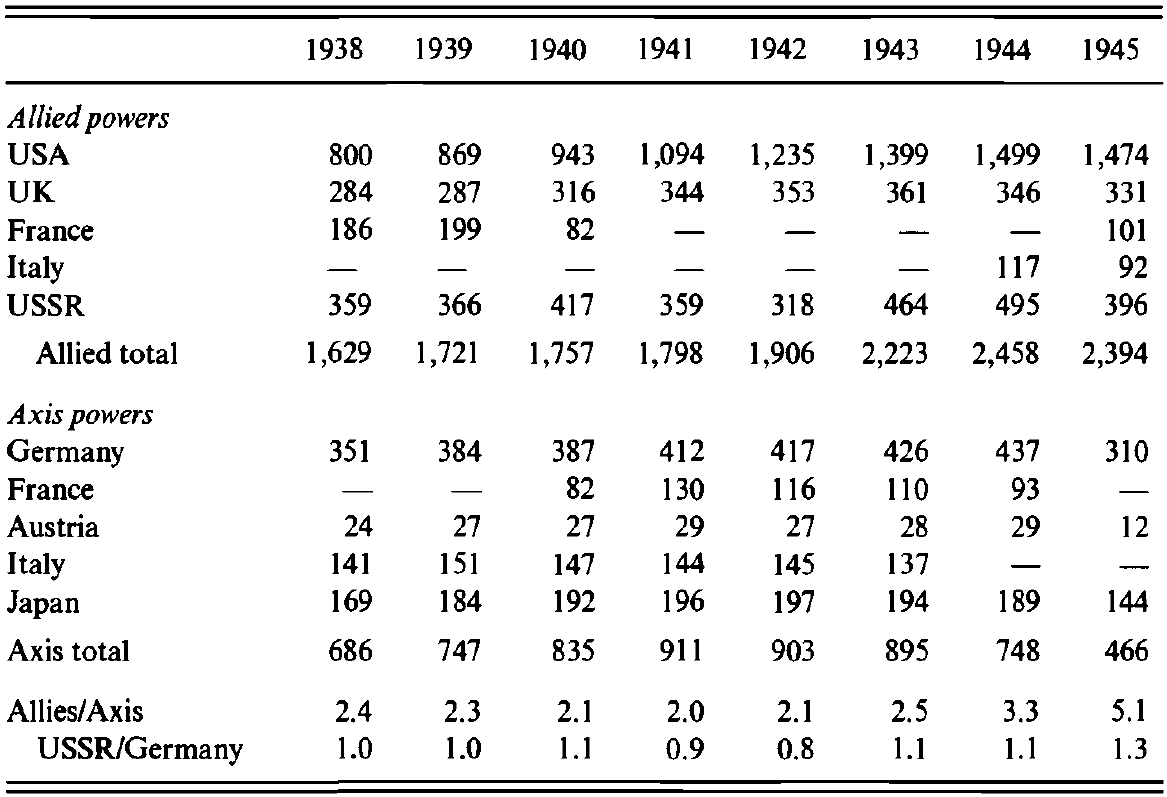GDPs ($b 1990) and GDP ratios of the great powers
World War II victory was won in two periods
This book deals with… …the contribution of economics to victory and defeat of the great powers in World War II.
… a broad understanding of ‘economies’… comprises the national requirements of the war, the quantity and quality of resources, their availability and mobilization, and the institutions and policies which mobilized them for wartime purposes.
… resources… include not only physical resources such as minerals, materials, and fixed capital assets, and financial stocks and flows, but also the human resources represented by the working population, its health and literacy, its degree of skill, training, and education, as well as assets represented by scientific knowledge and technological know-how.
…it has always made sense to distinguish two periods of the conflict.
World War II victory initially came from unexpected resistance
In the first period… strategy and fighting power enabled Germany and Japan to inflict overwhelming defeats…
The factors of strategic deception and surprise, speed of movement, skill in the concentration of forces and selection of objectives, martial tradition, and esprit de corps were all on their side. It was the very high quality of their military assets, the fighting power of their armies and navies, which, in the first years of the war, was almost decisive.
…the Axis leaders saw the warlike qualities of their military assets as providing a military substitute for productive powers, a means of neutralizing the quantitative advantages of the enemy, and an expansionist solution to their countries’ position of economic weakness.
The quick victory which Germany and Japan sought was frustrated by two factors:
- …the unanticipated will to resist…
- …the unexpected military capacity of the Allied powers to delay defeat and win time…
World War II victory later came from economic superiority
In the second period of the war… opposing forces ground each other down…
It was the quality, not the quantity, of German and Japanese military resources which postponed their defeat for so long, forcing their wealthier adversaries to accumulate a vast quantitative advantage in personnel and weapons before the defeat of the Axis could be assured.
The greater Allied capacity for taking risks, absorbing the cost of mistakes, replacing losses, and accumulating overwhelming quantitative superiority… determined the outcome.[1]
- Harrison, Mark. “The economics of World War II: an overview.” The economics of world war II: Six great powers in international comparison, edited by Mark Harrison, Cambridge University Press, 2000, pp. 1-42.